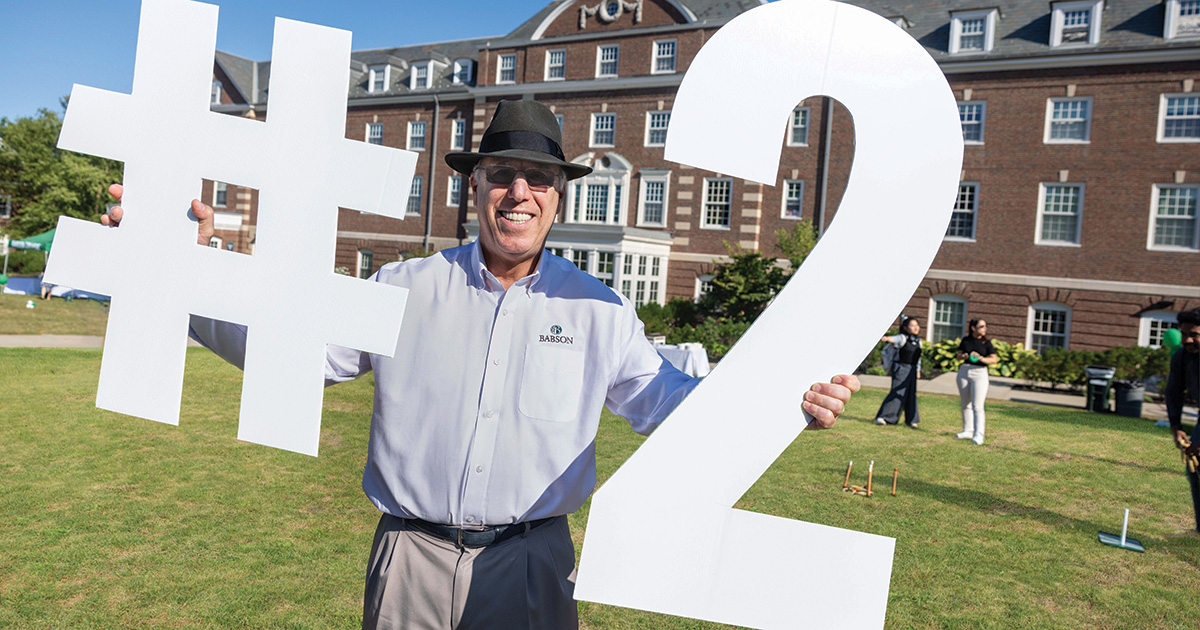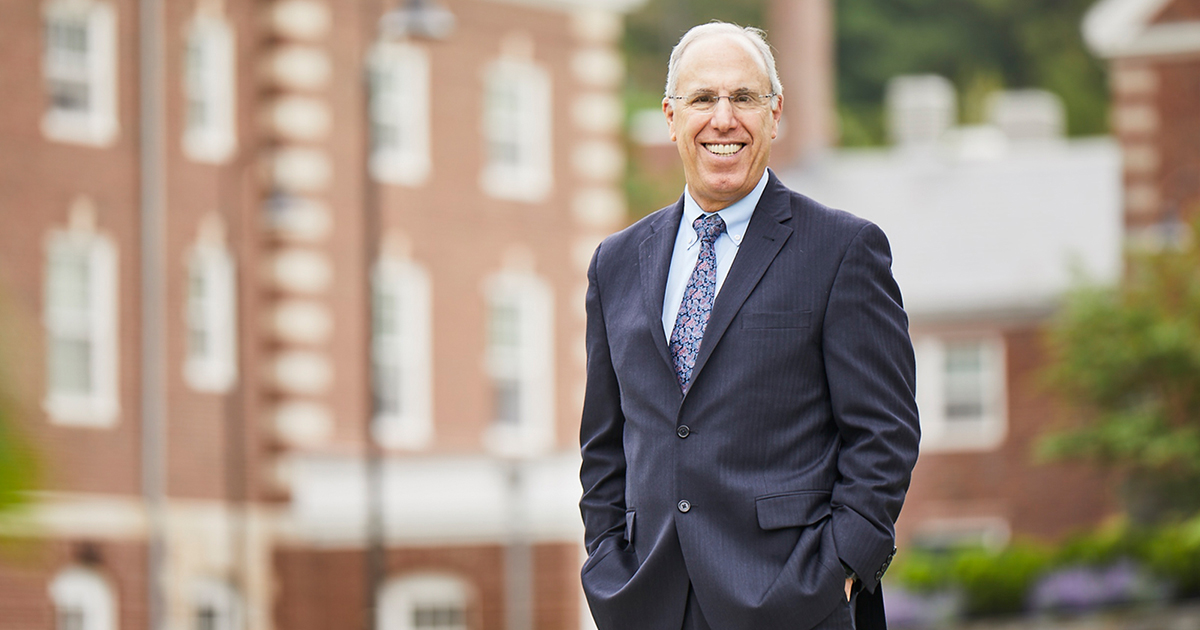From the President: Entrepreneurs Continue to Lead the Way

In the larger scope of business and management education, entrepreneurship can be considered a relatively new academic discipline. Though the American postwar social and economic climate of the mid-20th century was ripe for new businesses and product innovations, the study of entrepreneurship was only beginning to be seen as a viable scholarly pursuit.
In its infancy, entrepreneurship education was only offered at a handful of colleges and universities across the country. Though—to the benefit of business and society—that was soon to change.
BABSON MAGAZINE: Read the complete Winter 2024–2025 issue.
The latter half of the 20th century saw academics and business professionals alike beginning to recognize the unprecedented value of entrepreneurship education. Each decade from the 1960s through the millennium saw new entrepreneurship courses, majors, academic centers, and thought-leadership institutes emerge on college campuses.
Even as entrepreneurship as an academic discipline grew, many continued to question if entrepreneurial skill sets could be taught. Some posited that the traits that make an entrepreneur—the ability to relentlessly iterate and see no obstacle as too daunting to overcome—were inherent in some but not attainable by all.
At Babson, we never believed that to be the case. In 1967, we began to offer entrepreneurship as a course for graduate students. The late 1970s saw Babson launch undergraduate entrepreneurship programs and establish our first Center for Entrepreneurial Studies and the Academy of Distinguished Entrepreneurs®.
Our early adoption of entrepreneurship education, all rooted in the entrepreneurial spirit of our founder and first president, Roger Babson, has yielded unprecedented results. This is most clearly exemplified by our historic ranking as the No. 2 best college in the United States by The Wall Street Journal.
This issue of Babson Magazine illustrates how our milestone Wall Street Journal recognition is a testament to the impressive outcomes our students and more than 45,000 alumni achieve around the world. Added focus on graduation rates, graduate salaries, and campus diversity are reasons why we serve as a model leader across higher education.
New campus spaces such as our Herring Family Entrepreneurial Leadership Village and thought-leadership resources in the C. Dean Metropoulos Institute for Technology and Entrepreneurship ensure that Babson is equipped to inspire the next generation of learners and leaders.
The successes of our community—and its impact on creating economic and social value around the world—convince me that entrepreneurs will continue to lead the way.




